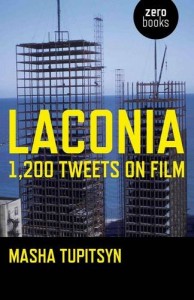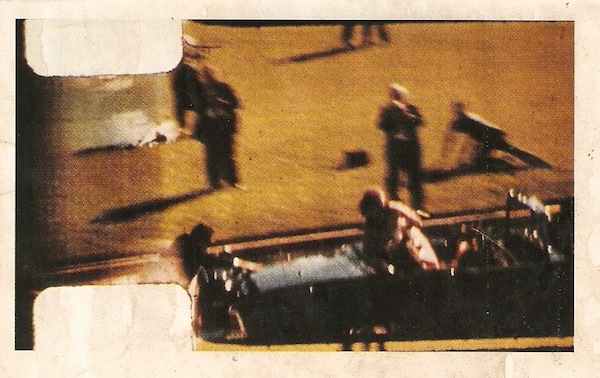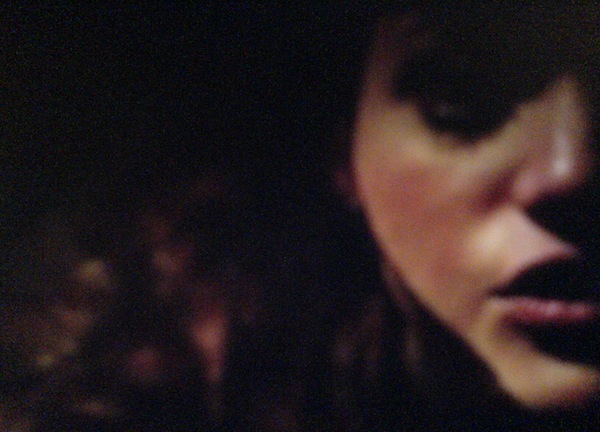Gender City
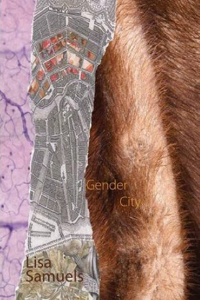 Gender City
Gender City
by Lisa Samuels
Shearsman Books Ltd, 2011
114 pages / $16.00 Buy from Shearsman Books
Rating: 0.0
The epigraph(s?) of Gender City condenses what would be the otherwise unacknowledged or scattered cathectic charges of pavilions in a blank and anti-readerly moment as esoterically alarming as the discovery of age-weighted shelving practices, while utilizing the stylistic succor of regulative coolant (the wonderful Lisa Robertson) and aspirant fantasticality (New Zealand at Shanghai World Expo 2010). Spectrally efficient, these two quotes effect mutation and prove temporarily problematic: by brushing the bounds of a credible tele-cocoon with you, the writing soon coaxes out resentment for the rhetorical transposition in section one, that is, demoing a contrasting reader task, and projecting this actual loneliness backwards. This is not a question of inelegance, but a question, for me, of palling around with dissatisfaction beyond an intimacy that was never anything but that, a serif font that does the one like an I [“Homosocial fugue”], the first of nine content markers marking content that does not.
August 24th, 2011 / 12:57 pm
ZOETROPE, PLEASE.
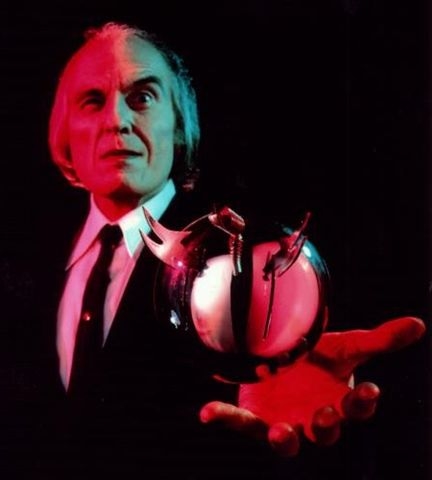
I got an email from Zoetrope with the subject line: “Fall Preview! The Horror Issue” and my first thought was, Awesome, I’ll probably have to resubscribe to Zoetrope: All Story.
Then I opened it and read the email’s content:
Zoetrope’s Fall 2011 release is a specially themed horror edition that includes scary stories from Jim Shepard, Karen Russell, Alexandra Kleeman, and Ryu Murakami.
Are you fucking kidding me? Those are the authors you pick for your horror issue, Zoetrope? READ MORE >
“as a human being living amidst a civilization’s collapse”: Mathias Svalina talks about his new book & gives away money

I’m pleased to present the following interview I conducted with Mathias Svalina, author of one book of poems, Destruction Myth (Cleveland State University Poetry Center), & one book of prose, the newly released I Am A Very Productive Entrepreneur (Mud Luscious Press).
To celebrate the release of I.A.A.V.P.E., Mathias has decided to give away money.
One dollar to be exact, but a very special dollar…
To win, post a word from the dictionary in the comment box below. Mathias will randomly select one of the words as the winning word. To the writer of the winning word, Mathias will write a unique business plan on a dollar bill, which the winner can then showcase (or spend) to commemorate their first dollar earned.
Contest ends Friday at noon.
The Writerly Life: Part Uno

Started teaching at a new place today. Was hired on Friday. That’s one weekend to prep. It’s a freshman writing class. Nice kids. First day of college, etc. etc. They all get laptops. I do too. I don’t like teaching when I’m not doing it. I like it okay when I am. We talked about some fiction-y things. They wrote a little about an impossible thing that didn’t happen to them but did, ala truth vs. Truth in fiction, etc. I don’t know. I had no time to prep this class that I’ve never taught. It will not be taut. But they will write some things and revise a few. Maybe they’ll develop a writing vocabulary. They are art students so they will also draw some things. They will put these words and pictures together and make new things. I said something about Sid Vicious. I said fuck. I wore a nice teal dress and some heels. You know, like a real-live-person. This morning, before everything, I wrote a poem about X-ray Astronomy but really about pain or something. This is part of a new hour-a-morning scheme. And then I worked at another job where I wrote emails and shuffled papers, which was fine. I dealt with some drama here and there. Then I went to the other job, teaching writing. Then I went to an art collective meeting. Then I went home and crawled into my pajamas and a hoodie. I wrestled the tennis ball away from the pit-chow mix. I can stick my hand into his mouth, and he won’t bite me. Sometimes he growls if I tug on his paws. Sometimes I try to stick my head in his mouth. I did not walk too much today. Or do my special physical therapy exercises. But nothing hurts too bad. There was coffee. I smell like cigarettes.
Wayne Koestenbaum’s Humiliation & Kate Zambreno’s Green Girl
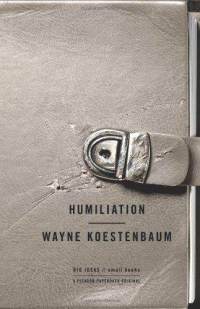 Just released from Picador’s “BIG IDEAS // small books” series is Wayne Koestenbaum’s 184 pp meditation on Humiliation, which I read in two 2-hour sits on a stationary bike punctuated with a few seatings on the toilet. It felt good to read this book in those places, which is often where I read anyway but don’t as often get to admit with relevance, but at last, here is a book in which those sorts of places might well be the center.
Just released from Picador’s “BIG IDEAS // small books” series is Wayne Koestenbaum’s 184 pp meditation on Humiliation, which I read in two 2-hour sits on a stationary bike punctuated with a few seatings on the toilet. It felt good to read this book in those places, which is often where I read anyway but don’t as often get to admit with relevance, but at last, here is a book in which those sorts of places might well be the center.
Humiliation operates in many ways at once. In short, numbered sections referred to as “fugues,” themselves cut up into numbered chunks of information, Koestenbaum goes forth into dissecting how the experience of being humiliated operates on a person, and therefore creation. The span of references here are quite wide, revolving quick enough to keep the brain moving as quickly as Kostenbaum’s dissective eye wakes each one up. From craigslist ads such as “HAIRY ITALIAN WANTS TO HUMILIATE A GENEROUS BITCH,” to Koestenbaum’s lurking in men’s rooms for encounters (and politicians caught inside the same), to de Sade and Artaud and Basquiat and Michael Jackson, and so on, the feed remains continuously engrossing in that way that all acts of humiliation seem to, publicly and privately, in spectacle, though here handled through Koestenbaum’s sharp and self-aware way of parsing act into idea.
“The reason I’m writing is to silence the deep sea-swell of my humiliated prehistory,” Koestenbaum writes, “a prologue no more unsettling than yours.” One of the major ideas explored here seems the matter of identity and experience that arises from the very act we work as people most ways to avoid: being humiliated. In each transaction there is the victim, the abuser, and the witness. Koestenbaum pulls off this weird shift of internal self-creation mixed with the experience of the other in an incredibly balanced method of veering back and forth between cultural commodity, confessional remembrance, and pointed commentary. A lot of questions are asked, moments are raised, allowing a kind of skin to rise up rather than some definitive proclamation of the idea. The book itself seems to both reveal and reveal and turn and turn, the way we might try to pretend to not be looking at something in the presence of someone else, though unable to fully look away. The moments of the facing, too, are powerful for how plainly they’ve been laid out. The book ends with a list in the spirit of Dodie Bellamy of some of Koestenbaum’s humiliating experiences: “My mother pulled a knife on my father, whose shocked aunt sat watching on a black leather chair. (The knife had a dull blade.)” or “A kid in seventh-grade gym, on the soccer field, called me a ‘wop faggot.’ I was flattered to be mistaken for an Italian.” The chain of small hells is both cringey, silently grinning, desperate, and wise. These things are laid out for us to take them, and this too becomes part of the machine, a kind of revolving door of do what you will with this, and please be kind. That at the same time Koestenbaum bares such skin he makes his subject so impossibly addictively paced and by turns tickling that it is impossible to put down becomes both a welcoming and a silent stab of implication: we are right here and he can’t see us and we can see all of this of him, which is the nature of the transaction of all making, and all taking. READ MORE >
Just Fishing
Where are the serious glow Richard Brautigan scholarship texts? The contemplative biography, the critical one, the highbrow, the wrong one, the near-right one, the way-2-academic one, the lazy-as-loon one, the tell-all, etc. Don’t you feel a fucking void? No, no, don’t dare whisper memoirs by his so-called “friend” (Don’t get me started—whole different post) or his daughter dear. Where. Are. They? Lead me. Tell me real. [I am looking forward to this. Maybe it will unruffle me.]
Do I need to write the damn thing? (Or you?) Maybe.
Two Videos
No Perch does readings in unusual places. Here, Amelia Gray reads from Threats on a moped. (That video quality? How on earth?)
Mule & Pear is a new book of poetry by Rachel Eliza Griffiths and has a book trailer I really love which is saying something because I do not care for book trailers.
Art Observed (Dreamin’ and Drivin’)
This Week: Why not, you text everywhere else right? If you see something, say something. Turn that frown upside down. The car is a perfectly poetic place to die. It’s never too late to change directions, but hurry, cause no one lives forever. – TD
I Am A Very Productive Entrepreneur (2)
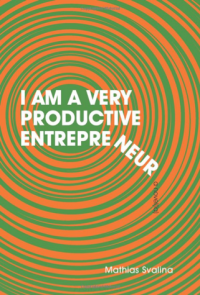 I Am A Very Productive Entrepreneur
I Am A Very Productive Entrepreneur
by Mathias Svalina
Mud Luscious Press, 2011
67 pages / $12.00 Buy from Mud Luscious Press
Rating: 8.0
Mathias Svalina’s I Am A Very Productive Entrepreneur has a very simple conceit: in a series of vignettes, an entrepreneur describes the outlandish businesses he’s started, and, occasionally, their reasons for not working. Thus, we learn of enterprises to turn everything into gold, to put blond hairs on the pillows of single men, to allow children to remain children forever, to retrofit memories with pilot lights and to slip old notes inside of used books by invisible employees.
August 23rd, 2011 / 12:17 pm

